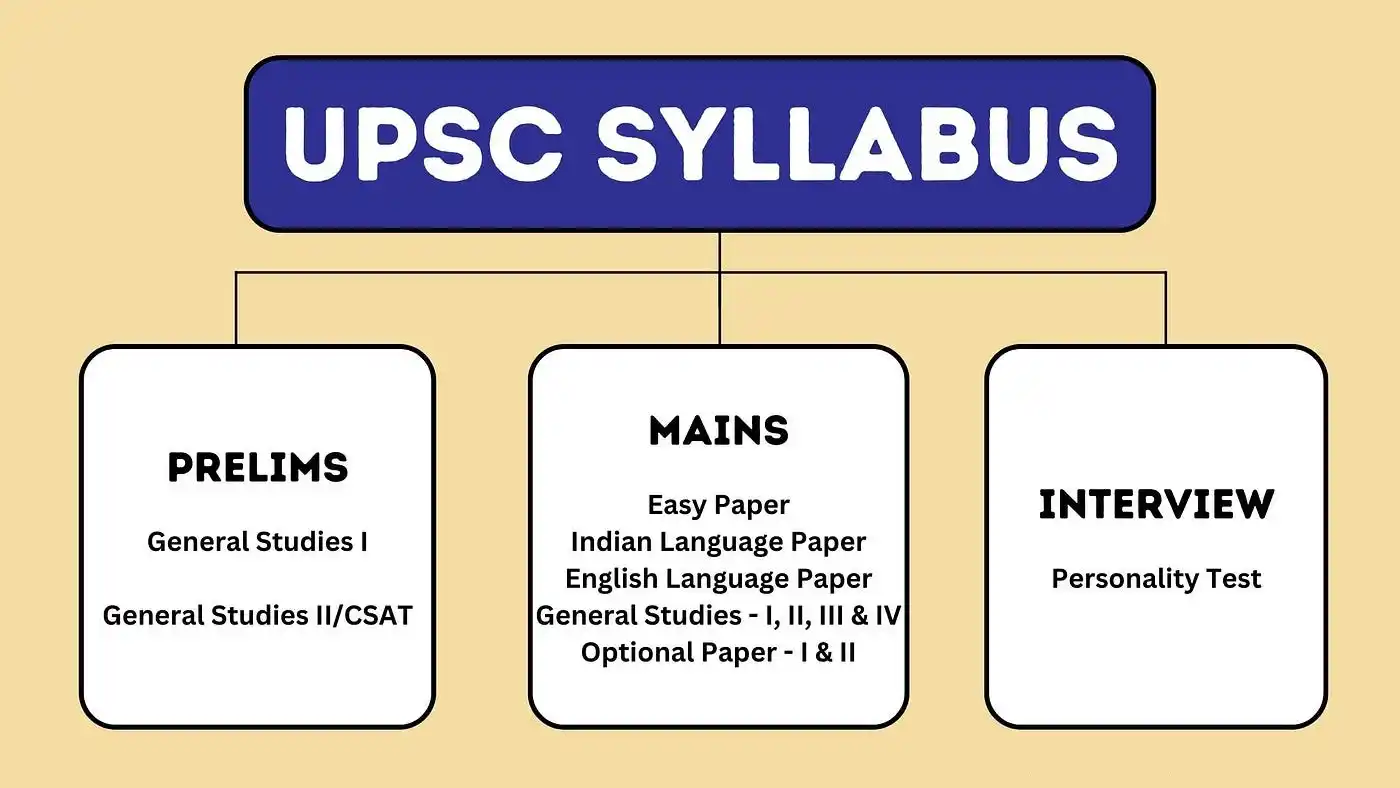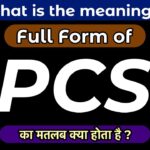UPSC Syllabus CSE – Complete IAS Exam Syllabus for Prelims and Mains
The UPSC Civil Services Examination (CSE) is one of India’s most competitive and prestigious exams. Conducted annually by the Union Public Service Commission, it recruits candidates for top government positions such as IAS, IPS, IFS, and IRS.
Before beginning preparation, every aspirant must gain a clear understanding of the UPSC Syllabus. Knowing the syllabus not only guides your preparation but also helps in effective time management.
This guide presents the complete UPSC syllabus for Prelims, Mains, and the Personality Test (Interview).
📑 Table of Contents
- IAS Syllabus for Prelims
- IAS Syllabus for Mains
- GS Paper I
- GS Paper II
- GS Paper III
- GS Paper IV
- Essay and Language Papers
- UPSC Syllabus for Optional Subjects
- UPSC Syllabus for IAS Interview
- FAQs on UPSC IAS Syllabus
1. IAS Syllabus for Prelims
The Preliminary Examination is the first stage of UPSC CSE. It is a screening test to shortlist candidates for Mains. While Prelims marks are not counted in the final ranking, qualifying this stage is essential.
Exam Pattern – Prelims
- Two compulsory papers:
- General Studies Paper I (100 questions, 200 marks)
- General Studies Paper II – CSAT (80 questions, 200 marks)
- Negative marking: ⅓ of the marks for each wrong answer.
- Duration: 2 hours each.
Prelims Paper I – General Studies
Focuses on general awareness across subjects:
- Current events of national and international importance
- History of India and Indian National Movement
- Indian and World Geography
- Indian Polity and Governance
- Economic and Social Development
- Environment, Ecology, Biodiversity, Climate Change
- General Science
Prelims Paper II – CSAT
Tests aptitude, comprehension, and reasoning skills:
- Comprehension & interpersonal skills
- Logical reasoning & analytical ability
- Decision making & problem solving
- Basic numeracy (Class X level)
- Data interpretation (graphs, charts, tables)
2. IAS Syllabus for Mains
The Mains Examination tests a candidate’s academic depth, critical thinking, and ability to write structured answers. It consists of 9 theory papers, of which 7 are counted for merit.
UPSC Mains Exam Pattern
| Paper | Subject | Marks |
| Paper-I | Essay | 250 |
| Paper-II | General Studies I | 250 |
| Paper-III | General Studies II | 250 |
| Paper-IV | General Studies III | 250 |
| Paper-V | General Studies IV | 250 |
| Paper-VI | Optional Subject – Paper 1 | 250 |
| Paper-VII | Optional Subject – Paper 2 | 250 |
| Qualifying Paper | Indian Language | 300 |
| Qualifying Paper | English | 300 |
GS Paper I – Indian Heritage, History and Geography
- Indian Culture – Art forms, literature, architecture
- Modern Indian History (18th century onwards)
- Freedom Struggle – contributors & movements
- Post-independence consolidation
- World History – industrial revolution, world wars, political philosophies
- Indian Society – diversity, population, urbanization, women’s role
- Globalization and its impact
- Physical geography, resources, geophysical phenomena
Polity, Governance and International Relations
- Indian Constitution – evolution, features, amendments
- Union & State functions, federal structure
- Parliament & State legislatures
- Executive, Judiciary, Constitutional bodies
- Governance – policies, welfare schemes, NGOs, SHGs
- Social justice issues – poverty, hunger, health, education
- International relations – India’s neighbors, global groupings, diaspora
- Important international institutions
Economy, Technology and Security
- Indian Economy – growth, development, employment
- Inclusive growth, budgeting, land reforms
- Agriculture – crops, irrigation, subsidies, PDS
- Food processing, supply chain management
- Infrastructure – energy, transport, IT
- Science & Technology – IT, space, robotics, biotech
- Environment & ecology, disaster management
- Internal security challenges – cyber security, extremism, border security
Ethics, Integrity and Aptitude
- Ethics & human interface
- Attitude, values, emotional intelligence
- Public/Civil service values
- Governance ethics, accountability, transparency
- Probity in governance, RTI, corruption issues
- Case studies
Essay and Language Papers
- Essay Paper: Write essays on multiple topics with clarity and structure.
- Qualifying Language Papers:
- Essay, comprehension, précis writing
- Translation (English ↔ Indian language)
- Grammar & vocabulary
3. UPSC Syllabus for Optional Subjects
Candidates must choose 1 optional subject (two papers, 250 marks each). UPSC offers 48 subjects including:
- Literature (22 languages + English)
- Popular optional: History, Geography, Public Administration, Political Science, Sociology, Anthropology, Economics, Philosophy, etc.
4. UPSC Syllabus for IAS Interview (Personality Test)
The Interview is the final stage (275 marks). It assesses:
- Mental alertness
- Analytical ability
- Leadership skills
- Integrity & values
- Communication skills
- Awareness of current affairs & social issues
It is a purposive conversation, not a test of factual knowledge alone.
5. FAQs on UPSC IAS Syllabus
Q1. What are the subjects in UPSC?
UPSC covers History, Geography, Polity, Economy, Science & Tech, Ethics, and an Optional subject.
Q2. What is the fee of UPSC application form?
₹100 (exempted for SC/ST/PH and female candidates).
Q3. Is IAS syllabus tough?
Yes, it is vast, but with a smart strategy and year-long preparation, it is manageable.
Q4. Does UPSC Syllabus PDF contain prelims and mains syllabus both?
Yes, it includes Prelims, Mains, and Optional.
Q5. Is there a syllabus for UPSC Interview?
No fixed syllabus. It evaluates personality, awareness, and suitability for Civil Services.
PCS Full Form
PCS stands for Provincial Civil Service (sometimes called State Civil Services) in India. It refers to administrative roles under state governments, selected via exams held by each State Public Service Commission (e.g. UPPSC, MPPSC). PCS officers perform duties in law & order, revenue, district administration and local governance. The PCS exam usually has three stages: prelims, mains, and interview. Requirements include Indian citizenship, minimum educational qualification (bachelor’s degree), and age criteria. Although “PCS” can also mean Personal Communications Service in telecom, in Indian governance context it almost always refers to Provincial Civil Service.





